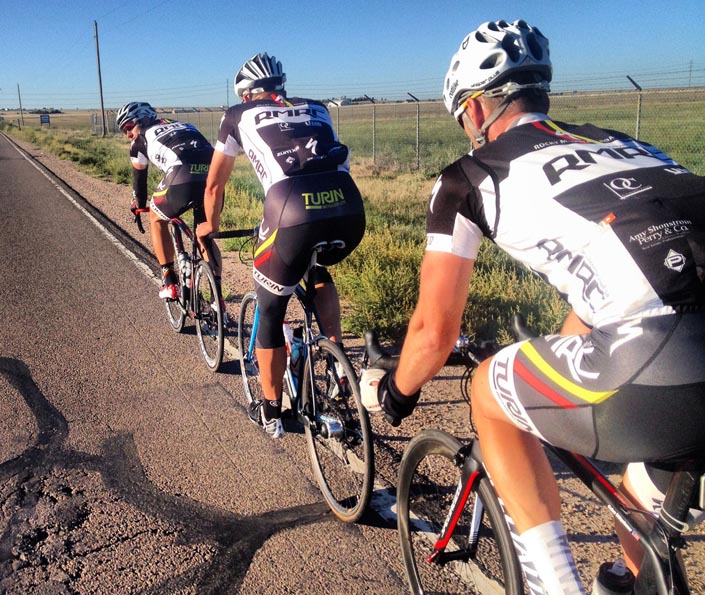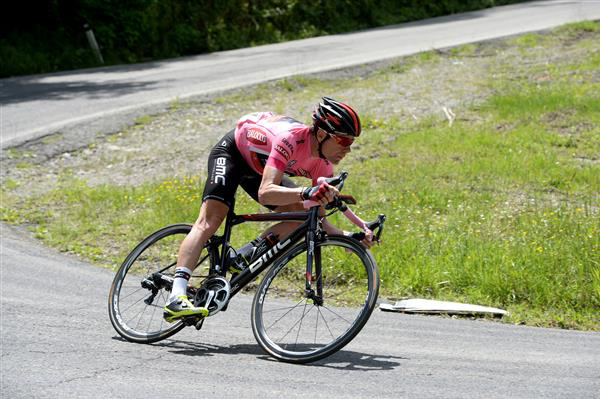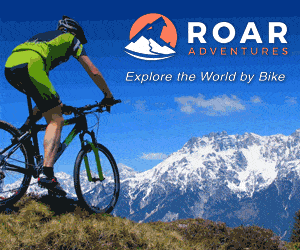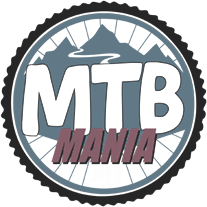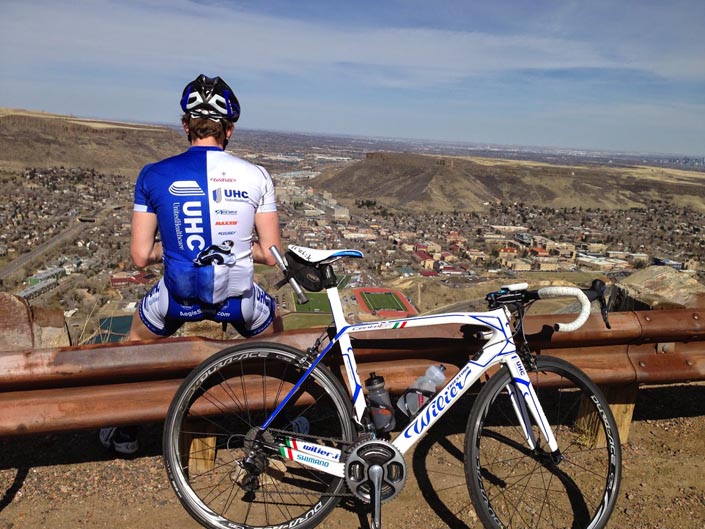
image: martynirvine.blogspot.com
Last week we looked at the equipment and bike gear necessary for an epic ride: this week we examine the steps needed between making the decision to take part and ride day itself.
Having made the commitment to do your Gran Fondo ride, the next step is to map out your preparation for the big day. As we mentioned last week, planning is the key to successful ultra rides; not only will it increase your chances of having a stress-free day, it will also add to your overall sense of satisfaction once you have rolled past the finish line.
Bike Time
There is one thing that there is absolutely no substitute for: hours in the saddle. This should be the primary focus of your training and preparation. Get used to grinding away, particularly in hilly terrain. Let your legs, your butt, your feet, hands, and mind acclimatize to tapping away for hour after hour. If you are an experienced rider you may be surprised at what hurts and what doesn't - your legs, after all, are comprised of some very big muscle groups and have become accustomed to long rides, and therefore won't reach the point of exhaustion for many hours. But the soles of your feet, the palms of your hands, and the webbing between your fingers will often begin to throb after 4 or 5 hours. Don't find out about this the hard way (i.e., on race day). Do your homework by putting in the miles and you'll reap the rewards.
Mental Preparation
Your mind needs training just like your body does, so it's important during your longer rides to put aside some time for mental preparation. Get used to the idea of riding when you're tired and don't want to continue, and teach yourself to distinguish between the times when you really feel like quitting and those when you actually should. This is as much an art as a science, and it's different for everyone.
There is no feeling that comes close to the deflation that accompanies a DNF (Did Not Finish), especially when deep down you know you quit just because things got tough, not because you were actually in any danger. Conversely, it is foolish to put yourself in real jeopardy just to complete a bike ride. It is only after putting in the hours, riding when you're hot or cold or tired or hungry, that you can learn to pick the difference.
Sucking Wheel
Holding a wheel - that is, riding in the slipstream of the rider or riders in front of you - is an invaluable skill. Get used to "sucking wheels" in bunch rides during training or social rides and you'll be capable of saving yourself some valuable energy on ride day. Don't fall into the trap of thinking that drafting is a "soft" option; if it's good enough for the pros to do it, it's fine if you do, too.
Practice riding as close to the wheel in front as you safely can, and get used to allowing for cross-winds and other hazards. This is a golden opportunity to get used to riding in "the drops" - the lowest part of your handlebars. As a general rule, you can ride at the same speed but put out 2-3% less power (a significant energy saving in a long ride) just by switching from having your hands on your brake hoods to having them in the drops. Get used to this position during training rides - it's pointless waiting until the big day to try it, as it does require some experimentation and adaptation.
Bike Handling - Descending
Whilst getting used to riding in the drops you can sharpen up your cornering and descending abilities. These skillsets are important for three reasons. Firstly, cornering and descending are awesome fun and are part of what makes riding worthwhile. Secondly, descents are free speed and it's important to make the absolute most of it. There is nothing more frustrating, and maybe even saddening, than watching a rider fearfully pick their way down a beautiful mountain, teeth clenched, bars clutched tight in a death-grip, hating every minute of it.
Remember, if you sweated your way up a mountain then you've earned that free speed on the way down the other side - practice your descending and have some fun. Finally, you need to keep your descending and cornering sharp because of those riders that hate going downhill: it is a sad inevitability that you'll swoop around a hairpin on Fondo day to find a petrified mountain-hater in the exact centre of the road travelling at precisely half your speed. Don't panic: the skills and confidence that you've built up during training will allow you to safely negotiate your way around them.
So, in summary: ride long and often, hone your mental toughness, get used to riding in the drops, practice holding a wheel like your life depends on it and learn to love going downhill.
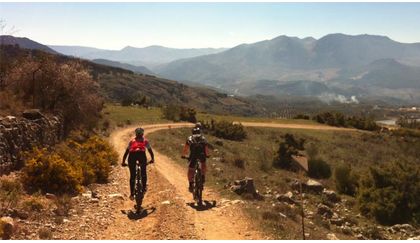
RELATED ARTICLE:
5 tips to endurance cycling success
Generally speaking, cycling is a fairly low-impact activity for your knees. Indeed, stationary bikes are used in many physiotherapy clinics as part of the rehabilitation protocol after knee injury and as a way to help improve knee joint mobility and stability... READ MORE
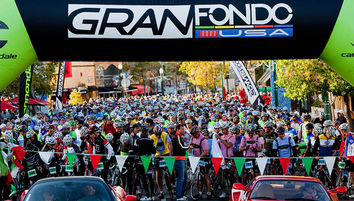
RELATED ARTICLE:
How to prepare for a 100 mile Gran Fondo or charity ride
Generally speaking, cycling is a fairly low-impact activity for your knees. Indeed, stationary bikes are used in many physiotherapy clinics as part of the rehabilitation protocol after knee injury and as a way to help improve knee joint mobility and stability... READ MORE
